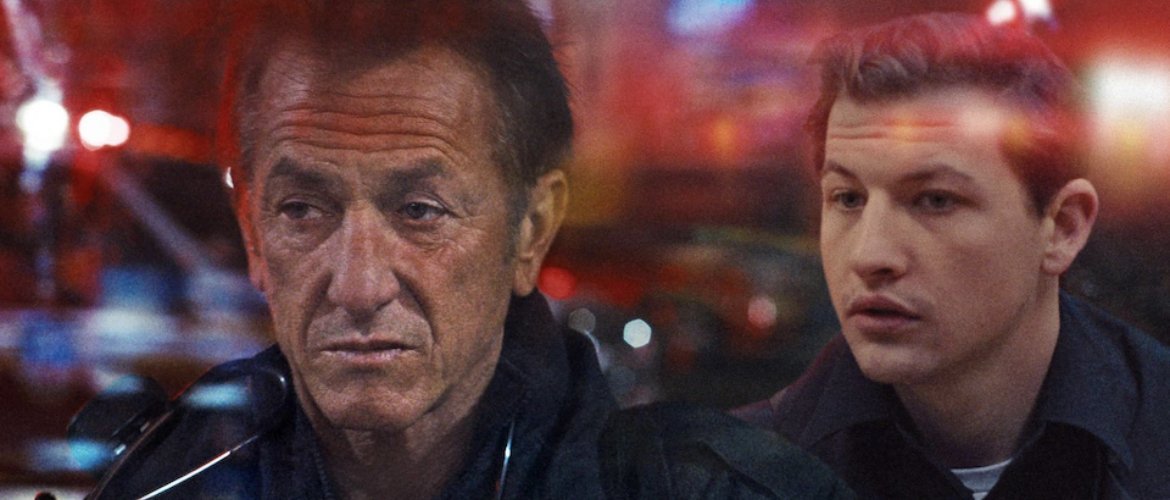Movie Info
Movie Info
- Director
- Jean-Stéphane Sauvaire
- Run Time
- 2 hours
- Rating
- R
VP Content Ratings
- Violence
- 5/10
- Language
- 6/10
- Sex & Nudity
- 5/10
- Star Rating
Relevant Quotes
Insults have broken my heart,
so that I am in despair.
I looked for pity, but there was none;
and for comforters, but I found none.
And war broke out in heaven; Michael and his angels fought against the dragon. The dragon and his angels fought back, but they were defeated, and there was no longer any place for them in heaven.

French-born director Jean-Stéphane Sauvaire has gifted us with the most harrowing parable about an ambulance medic since Martin Scorsese’ 1999 film Bringing Out the Dead. That title fits the newer film as well, with so many of the victims treated by the two medics in this story dying before or just after arriving at the hospital, despite the medic’s frantic efforts. This film probably will make my Top Ten List for this year, though be forewarned that it is almost as bloody as the recently reviewed Immaculate—though here the blood is not for shock value.
Ollie Cross (Tye Sheridan) grew up in Colorado and has come to New York City to work the night shift of the city’s paramedic service while he studies during the day for the medical exam required for med school. Most of the time he is teamed with the veteran Gene Rutkovsky (Sean Penn), who is as close to burn out as Nicholas Cage’s paramedic in Bringing Out the Dead. In one scene he observes, “We carry the misery.” And that they surely do, as we see in the opening sequences that consist almost entirely of close-ups shot by a hand-held camera. We start with the paramedics tending to the victims of a mass shooting, jump to a victim of a dog attack, and then to a cursing old woman, perhaps a cardiac patient who does not know that the paramedics are trying to help and not attack her. The close-ups induce in us viewers a claustrophobic feeling, and the shakiness from the handheld camera making us uneasy, on edge, uncertain of what comes next. The darkness of the night-time adds to the sense of gloom and doom. At one point their superior, Chief Burroughs, says, “I don’t know if I believe in heaven but I believe in hell.”
And hell, it often is with screams and blood on the victims and their clothing. No one thanks them as they struggle to help—indeed, the old woman is not the only person that curses them and struggles against them as they try give an injection or affix an oxygen apparatus so they can breathe better.
“We carry the misery”—this made me think of Ollie’s last name, Cross. A not-so-subtle reference to the cross that Christ says the disciple must bear if he/she is to follow him? A far more obvious Christian reference is the picture of St. Michael that Cross has taped to the shabby wall of the room in Chinatown that he shares with several other men. St. Michael’s roles in the Catholic Church includes that of the leader of God’s army against the forces of hell and the guardian of the church. Ollie Cross must believe in this because the red bomber’s jacket he wears when he takes off his paramedic’s uniform has a pair of golden angel’s wings on its back.
One character tells Ollie that they are gods deciding who dies, and Gene also states this—” We decide who lives, who cares if drug dealers die. When the ambulance doors close, we’re no longer pawns, we’re gods”–as well as acting it out when they come upon a drug addicted HIV mother who is lying upon her bed soaked with her blood. Her baby is still attached to her by the umbilical cord. While Ollie tends to the mother, Gene takes the baby to a bathroom where he makes sure it will not suffer a life of addiction.
Gene tells the astonished rookie that he did what he thought was the right thing. Though the latter sticks up for him during the investigation, Gene is dismissed. The latter has no family to fall back on, being estranged from his wife (Katherine Waterston) who is about to marry another and move upstate, taking the only person he cares about, their young daughter. There is a rupture between veteran and rookie that the latter will regret because of what the utterly despairing Gene does.
All this has a debilitating effect upon the soul of the younger man. He escapes his misery by bouts of drinking, frenzied dancing and sex with a woman (Raquel Nave) whose name we are never given. As his mood darkens with each tryst, she says, “You can’t save everyone, not even with all these toys and the training.” She tries to comfort him, but can he be comforted, even by the remnant of faith he clings to, symbolized by St. Michael? There is at the last a hint that he will not go the way of Gene at the end when he is able to save the life of one of the victims he treats. After so much suffering and futile struggles to save life, this scene comes like the opening of a pressure valve in a boiler as it is about to explode. One might want to let out a “Hallelujah!
The end cards pay tribute to the suffering endured by so many paramedics, informing us of the high rate of suicide among them. By the use of the archangel Michael the filmmaker seems to be saying that if there any angels in the mean streets of New York, they are the paramedics. Their prayer might well be the opening line of the famous Saint Michal the Archangel Prayer, “Blessed Michael, archangel, defend us in the hour of conflict.”
This is not Woody Allen’s New York. It is the city that comes out after his upper-class intellectuals have gone to bed. Gene, Ollie, and their colleagues deal with the dregs of the city. We see their pain-wracked faces, but never learn their names. Junkies, the homeless, abused women, gun-brandishing teenagers, and impoverished immigrants, they have never counted, never are the reason why tourists Heart New York. I wonder how Christ would have dealt with such hopeless outsiders—also, I wonder about Ollie’s future, especially about what kind of a doctor he will become. One looking back from his fancy home, made possible by a high fee schedule, and regarding his recent weeks spent in hell as a bad but temporary dream?
This is often a hard film to watch—for some it will be the sex scenes as well as the bloody aftermath of accidents and shootings—but the film is rewarding for those who see it through to the end.
This review is in the April issue of VP along with a set of questions for reflection and/or discussion. If you have found reviews on this site helpful, please consider purchasing a subscription or individual issue in The Store.

